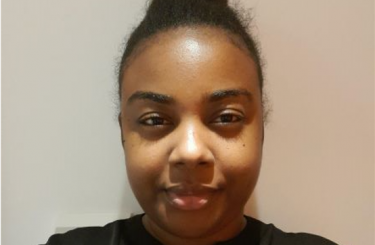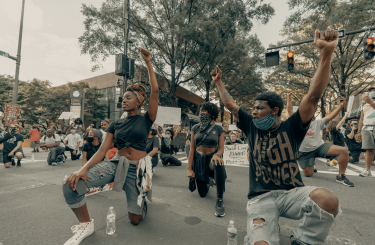Related



London Funders’ Funder Collaboration Coordinator and 2027 Associate, Alisha Pomells, builds on her initial blog (one month in at London Funders) to reflect on what she’s learnt, three months later, both at an individual level but also about the wider funding sector.
I go into these spaces and feel the need to champion and speak out for ethnic minorities because if I don’t, who else will? My question to funders would be, who is and isn’t in the funding spaces you occupy?
These last three months with London Funders have been amazing. I have had the opportunity to be part of some brilliant discussions and I have met some fascinating people within the funding sector who are passionate about change, and this has given me hope that whilst change within the sector can be slow, it is happening. I feel really supported by my colleagues and they are always encouraging me to not doubt myself when my imposter syndrome rears its head.
Drawing on my initial experiences in my previous blog around imposter syndrome and feeling alienated sometimes, I don’t feel like much has changed. I was hopeful the more I research I did the more confident I would feel, but unfortunately it is still there -in my face - 24/7. It is such a weird feeling as I know I am meant to be in these spaces and I have earned the right to be in them, but when you are the only ethnic minority in the room it can be very hard to not put a lot of pressure on yourself. Sometimes I feel like I am my own worst enemy. I go into these spaces and feel the need to champion and speak out for ethnic minorities because if I don’t, who else will? My question to funders would be, who is and isn’t in the funding spaces you occupy?
In short, there is a lot of work to do in terms of making funding decisions more equitable and encouraging more funder collaboration, but it is happening. Covid has not only exacerbated the pre-existing issues within London but has also had an overwhelming effect on marginalised communities and organisations , more so than any other groups.
One of the positives I have noticed is that since the start of the pandemic a lot more funders are moving towards offering core, unrestricted funding, which is great since historically, project-led funding has dominated grantmaking. I have also been really impressed by the scale at which funders are collaborating with one another, for example on the London Community Response, which has now allowed for a new collaborative piece on recovery to come into fruition, which I believe has such potential. However, I am hugely aware of the fact that some of the progress made during the first year of the pandemic in terms of funding more marginalised communities and simplifying the funding process is either slowing down or has come to a halt. This is quite a frustrating space to be in as the issues that presented themselves during the pandemic have not gone away. If anything, they are worse, and funders proved that they could adapt and take more ‘risks’. However, some are reverting back to old grant-making practices, which have proven to put smaller, marginalised community groups at a disadvantage. Doing so while simultaneously championing diversity, equity and inclusion is a massive juxtaposition.
Change the focus from risk to trust. Trust the organisations to do their jobs - they are the experts. They know what their communities need. Give them the freedom to make real change. I acknowledge that monitoring and data is important, but these are real people with real issues and surely if the whole point of philanthropy is to ‘help alleviate poverty’ then who best to help these communities than people with lived experience who are there every single day?
Offer more support at all stages of the process. It is well documented that most small community groups that are led by and for marginalised communities struggle to secure funding, or are on the brink of closure, due to various reasons such as lack of capacity to write funding applications and training. If you do not offer support such as feedback, various ways of submitting an application form or schemes like funder plus, how can we expect these organisations to elevate themselves and improve? I guess the question to funders is, do you really want these organisations to become sustainable? If so, what can funders do to help them get there?
Surely if the whole point of philanthropy is to ‘help alleviate poverty’ then who best to help these communities than people with lived experience who are there every single day?
I am hoping to learn more about racial justice and what better practice funders can put into place to really help marginalised communities. I am fortunate enough to be in an organisation, working with a network of members, where there are constant conversations on what can be improved and done differently, and how collaboration can facilitate this. I hope as the year progresses, I will continue to build relationships with not just like-minded people but also those who have a difference of opinion, and that the work I do will continue to make an impact.


